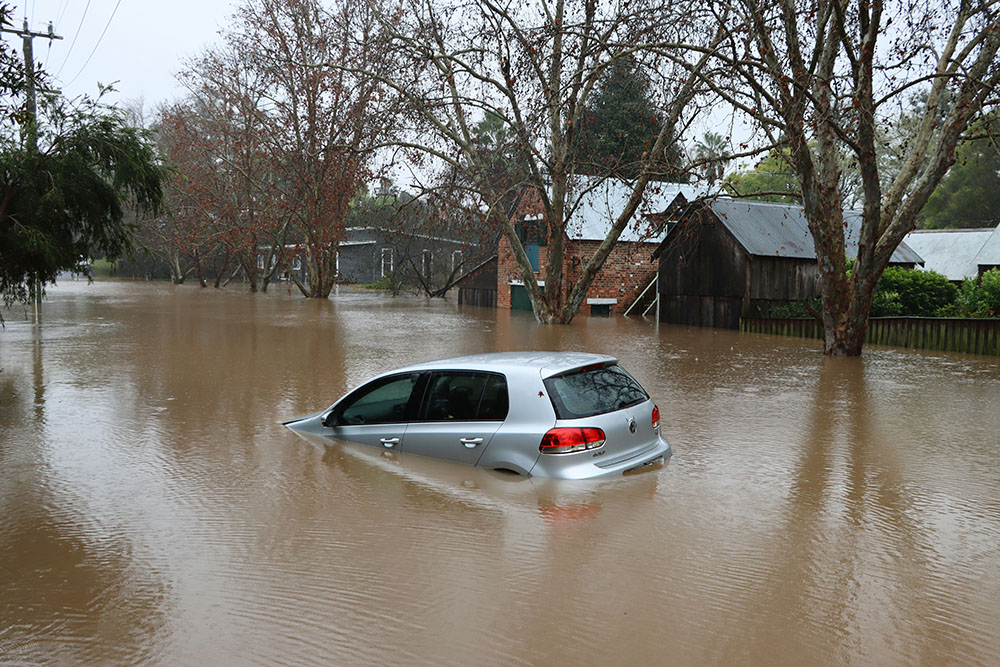FIRE & FLOOD: Are Your Investment Properties Safe?

This post is written by Trusted Partner, BDO Canada. To become a contributing editor, please contact our Real Estate Investor Solutions Specialist, David Maxwell at david@reincanada.com.
Reports of extreme weather conditions and natural disasters are escalating. In 2023, B.C. experienced over 2,200 wildfires, burning more than 2.8 million hectares. The Donnie Creek wildfire alone became the largest recorded wildfire in British Columbia’s history, resulting in tragic loss of life and property.
Alongside fires, Canadians constantly face threats from flooding and storms. How can you protect your properties? Here are comprehensive tips to ensure the safety of you, your family, your tenants, and your properties this summer.
Be Aware and Get Prepared for Common Canadian Natural Disasters
WILDFIRES
Risks: Wildfires pose significant risks including poor air quality, property destruction, and potential loss of life. Post-fire, risks persist through erosion, landslides due to vegetation loss, and water contamination from debris.
Prevention:
- Comply with fire bans and restrictions: Always adhere to local fire safety regulations to minimize risks.
- Camp responsibly:
○ Ensure campfires are no larger than 1.5 ft by 1.5 ft.
○ Keep a shovel or at least 8 liters of water nearby to extinguish the fire.
○ Create a firebreak around your campfire.
○ Ensure the fire is completely out and the ashes are cool before leaving. - Report smoke or flames: In BC, call 1-800-663-5555 to report any signs of wildfire, even if you believe someone else has reported it.
- Educate yourself: Learn more about wildfire prevention through resources like the Government of BC’s guidelines.
Preparation:
- Emergency Kits: Encourage tenants to prepare and regularly update emergency kits containing essential items. Each kit should include 2 liters of water per person per day, canned food, energy bars, and other non-perishable items. Additional necessities are a can opener, flashlight with extra batteries, a radio, a first aid kit, extra keys, cash, personal documents, and a well-thought-out emergency plan. Ensuring that these kits are kept up-to-date will help tenants be better prepared for any unexpected emergencies.
- Property Preparation: To reduce exposure to flames, create a 30-100 ft safety zone around your property, clear of leaves, twigs, and other flammable materials. Regularly mow and water the grass to keep it short and less flammable. Ensure BBQs have non-flammable screens and review local burning restrictions and regulations with tenants. Additionally, review and update your insurance policy to ensure it covers fire-related damages.
- Indoor Safety: Install smoke detectors and fire extinguishers in all properties, and ensure tenants know how to use them.
Post-Fire Actions: Before returning to your property after a fire, ensure it’s safe. Flare-ups can occur, so stay informed through local news and follow safety guidelines.
STORMS AND FLOODING
Risks: Flooding is the most common natural hazard in Canada, especially in spring due to heavy rains and snowmelt. Floods can cause extensive property damage and pose health risks.
Prevention:
- Clear Drainage Systems: Regularly clean gutters and downspouts to prevent water accumulation.
- Roof Maintenance: Have professionals inspect your roof for missing shingles and other vulnerabilities.
- Install Backflow Valves: On basement drains, washing machine drains, toilets, and sink drains to prevent sewage backup.
- Choose Permeable Surfaces: For driveways and sidewalks to enhance water absorption.
- Extend Downspouts: Ensure downspouts extend at least 2 meters away from basement walls to direct water away from your property.
Preparation: Educate yourself about the causes and impacts of flooding. In case of a flood, you may need to build a sandbag barricade to protect your property. The Government of BC offers free guidelines on building effective sandbag barricades.
Post-Flood Actions: Focus on restoring your property promptly to prevent further damage and protect tenants’ health. Review comprehensive flood recovery guides for detailed steps.
Insurance is Your Last Line of Defence
Despite thorough preparation, unexpected events can still occur. Therefore, having the right insurance coverage is crucial. Contact a qualified insurance broker today to ensure you and your investment are fully protected from these natural disasters.
Chris Westrop is the Vice President of Commercial Lines at Park Insurance. He has 30 years of experience in the commercial insurance business and is a Chartered Insurance Professional with the Insurance Institute of Canada. He is also a REIN member and a regular attendee at many of our programs. Learn more about Chris and the experienced team of Commercial Insurance advisors at Park Insurance. Chris may be reached at (604) 659-3133 or cwestrop@park.ca.
Chris is also a volunteer firefighter with the Chilliwack River Valley Fire Department and has first-hand experience fighting forest fires in BC.




